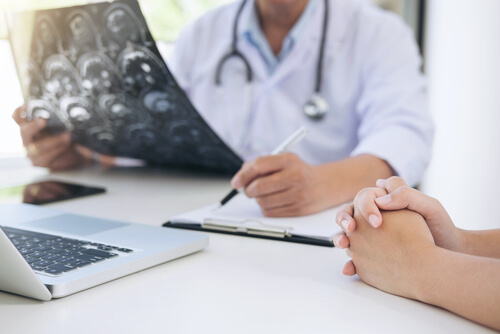
Cancer treatment has gone through a slow process of development. In ancient times, it was believed that once the cancer spread to other parts of the body, there would be no remedy for it. It was also believed that any attempt at treatment might be more harmful than not treating it at all. It wasn’t until the 19th and early 20th centuries that major advances were made in general surgery and cancer surgery. With the developments in anesthesia, swift and precision surgery, treatments have now been made possible that even use cutting edge technology.
However, cancer treatments can cause side effects. Side effects occur when the treatment permeates into a healthy tissue or organ and impacts it negatively. One of the most common side effects observed is hair loss.
Let us look at a few side effects of cancer treatments:
Hair Loss (Alopecia)
As mentioned, it is one of the most side effects of chemotherapy. Hair usually grows back two to three months after treatment ends. Until then, you can wear scarves or head caps.
Anaemia:
Cancer treatments, such as chemotherapy and radiation therapy can cause anaemia which means that your body does not have enough red blood cells to carry oxygen from the lungs to the rest of the body. It can make you feel very tired, short of breath, and lightheaded or dizzy.
Appetite Loss
Cancer treatments interfere with your appetite because either the food doesn’t taste the same or you generally lose your appetite because of physical fatigue.
Nausea and vomiting
Nausea refers to feeling sick to your stomach, whereas vomiting is when it manifests as you throwing up. Cancer treatments can trigger these, but appropriate medicines can help prevent it. You should also avoid taking greasy or fried foods at this point.
Edema (Swelling)
If the treatment radiation damages a lymph node or a vessel during surgery, it may not be able to perform its function. This means the lymph fluid may not be able to drain. Instead, it will build up under the skin and cause swelling. The skin can then look puffy and dented when pressed or there could be visible swelling in your hands, arms, abdomen, face, feet, ankles or legs.
Infection and neutropenia
Neutropenia can easily be one of the most dangerous side effects of cancer treatments. It refers to a decrease in the number of white blood cells. Your white blood cells are the body’s main defense against infection. Infection is also, therefore, very likely. Symptoms would include skin rash, diarrhoea, sore throat, fever, swelling, etc.
Pain
Pain is an obvious side effect of any surgery. And it can trigger a plethora of other problems: it can suppress the immune system, slow down the healing process, mess with sleep, and affect your mood. It is often advisable to have a pain control plan which includes pain medication, massage therapy or physical therapy. It all begins with reading the pain patterns of your body: what body part pains the most? When does the pain start? What makes the pain better or worse?
Memory/concentration issues
Cognitive problems like memory issues and problems with prolonged focus can also be a potential side effect. Cancer treatments such as chemotherapy may cause difficulty with thinking, concentrating, or remembering things. For some people the changes are more refined than for the others. Exercise is considered to be an effective antidote to the problem. It releases endorphins that are necessary for well-being.
Sleep Problems
All the surgeries, medication, the stress of diagnosis, and long hospital stays could have a damaging impact on your sleep patterns as well. It is not uncommon to see cancer patients complain of insomnia and other sleep-related disorders. Setting good bedtime habits can go a long way too. It should be kept in mind that disturbed sleep can be both a cause as well as an effect of the other side effects. Therefore, treating conditions like anxiety, depression, fatigue may also help regain a healthy sleep pattern. Which is why for many people, cognitive behavioural therapy (CBT) or relaxation therapy can help with this issue.
Certain side effects are unavoidable when it comes to cancer treatment. It should be kept in mind that everyone reacts differently to treatments, so side effects will also vary from person to person. You should communicate with your doctor at all times, including telling him/her about the side effects you have been experiencing.
Getting diagnosed with Cancer is really heart breaking, and because of our lifestyle and surroundings, the risk of getting Cancer is on an all-time high. Cancer cases in India is skyrocketing and nobody is safe. The most demoralizing part about Cancer is that it not only affects your health but also puts a major burden on your financial status. However, the financial burden that you face can be eased with the help of a Cancer insurance. Future Generali Cancer Protect Plan will help you stay financially and psychologically secure in case you or a family member of yours is diagnosed with Cancer


Comments